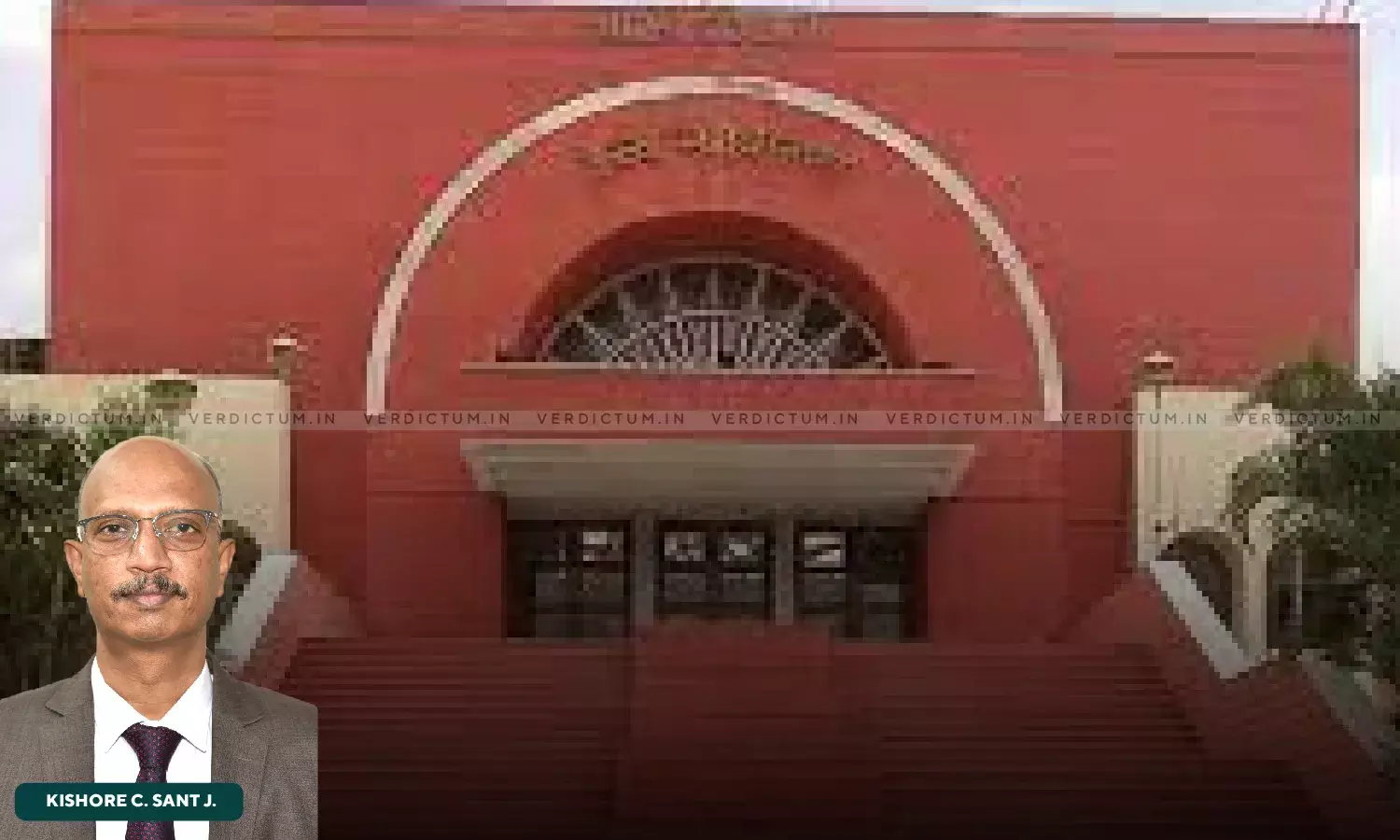Revisional Court Has Power To Call For & Examine Record, Issuing Direction U/s. 156(3) CrPC Does Not Amount To Taking Cognizance: Bombay HC

Justice Kishore C. Sant, Bombay High Court (Aurangabad Bench)
The Bombay High Court at Aurangabad upheld an order of the Session Judge which rejected the application by Police Officials objecting to the viewing of a video recorded on a CD, the recording of the alleged incident for not being produced along with a certificate under section 65-B of the Indian Evidence Act.
The High Court observed that "It is not a case of the petitioners that the CD is not forming part of the record. Said CD also is a document for the purpose of inquiry or trial or investigation etc. Thus, the learned Sessions Court certainly has power to examine the record."
The Single Judge Bench of Justice Kishore C. Sant was dealing with a Criminal Writ Petition filed by 8 Police Officials against whom one Shivraj Gopal Narilwale had filed a Criminal Revision Application under Section 156(3) of the Cr.P.C before the Session Court alleging assault and abuse in the name of a caste. It was noted that the Judicial Magistrate had refused to register the FIR in the absence of prior sanction from competent authority against the public servants, being aggrieved with which Gopal had approached the Session Court.
Pending the said revision, the Police Officials filed an application raising objection that the material such as Compact Disk (CD) produced by the complainant Gopal cannot be seen by the Sessions Court while deciding the revision application, as the same is not produced along with certificate under section 65-B of the Indian Evidence Act. The Sessions Judge rejected the said application and opined that the issue of admissibility of a document can be considered at the appropriate time and held that the document needs to be viewed by permitting the respondent to display the video recording, thus, the Police Official approached the High Court.
Appearing for the Police Officials, Advocate Aditya N. Sikchi submitted that in view of section 65-B of the Indian Evidence Act unless a CD is accompanied by a certificate, it cannot be viewed. He further submitted that viewing the document itself amounts to taking cognizance and if the evidence is admissible then only it can be seen at any stage. It was also argued that the Revisional Court’s power is limited to correct the legal mistake committed by the Trial Court and for that purpose, it is not necessary to view the CD.
On the other hand, appearing for the complainant, Senior Advocate S.B. Deshpande contended that the Court cannot be restrained from looking into document or the material before the Court in revision. It was submitted that in view of section 397 of the Cr.P.C., the Court has the power to call for record and proceedings and in this case the CD is a part of the record and proceedings and therefore same can certainly be viewed by the Court.
Considering the submissions, the High Court observed that Sessions Court has the power to call for and examine record and secondly, the Cout has to satisfy itself as to the correctness, legality or propriety of any finding, sentence or order, recorded or passed. It is not a case of the petitioners that the CD is not forming part of the record.
"This Court holds that the accused do not have a locus standi to file such an application raising an objection to view particular material produced before the Court. More so, when the same material forms a part of material produced before lower Court. The accused being respondents in the revision have to only defend/justify order passed by the learned JMFC. They cannot make the Court to exercise such jurisdiction, only in the manner they want. In-fact, filing of such application itself is telling the Court not to exercise its jurisdiction which, certainly, cannot be allowed," observed the Judge.
It was also observed that "It is well settled that issuing order/direction under section 156(3) of the Cr.P.C. is a pre-cognizance stage and it cannot be said to be taking of a cognizance. Looking at the documents and the material is only for the purpose of coming to a conclusion as to whether the case is made out from the allegations and the material on record to direct the police to investigate into the offence. Thus, looking to the material or the documents for the purpose of ascertaining whether directions under section 156(3) of the Cr.P.C. is necessary and also cannot be said to be taking cognizance."
Accordingly, the Petition was dismissed.
Cause Title: Sudhir & Ors. v. The State of Maharashtra & Anr. [CRIMINAL WRIT PETITION NO. 76 OF 2023]

